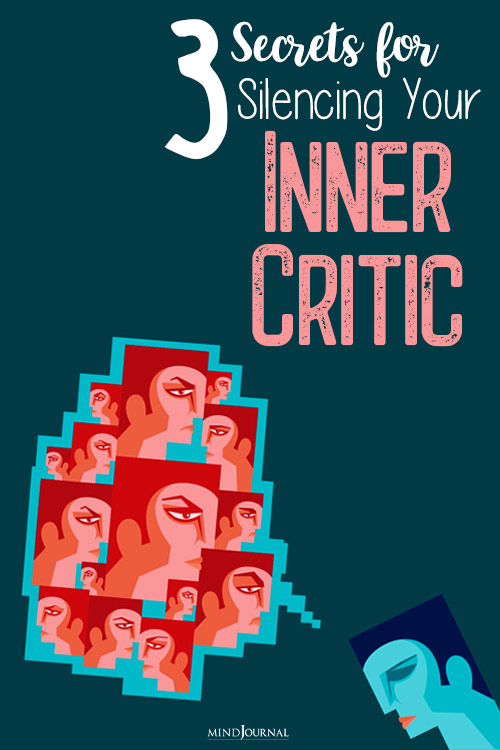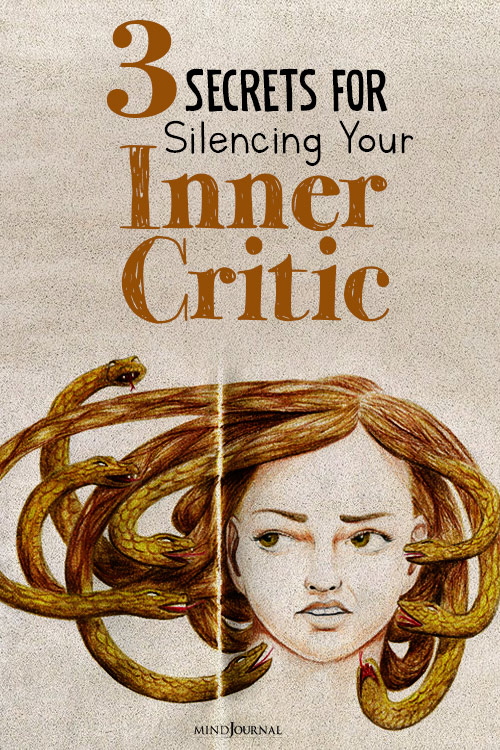Taming the demon inside you can be undoubtedly challenging, especially when your inner critic is constantly eating away your self-confidence. These critical voices have implications for our feelings, emotions, and motivations. The ones that never stop reminding you that you’re not enough. But now it’s time to silence them all.
“I’m no good at this.” “I’ll never be able to raise that kind of money.” “This will never work.” “I’m a failure.” Is this what your inner demons tell you? Here are easy tips for silencing your inner critic.
In my work teaching, training, and speaking with hundreds of professionals each year, I have learned that one of the most challenging parts of people’s jobs doesn’t really have to do with their job at all. It’s everybody’s own internal critic in their head that they can never get away from. And I actually find that it plagues some of the most high-achieving, high-potential people I know.
That internal critic in their minds just doesn’t give them a break. It’s like my grandfather — God bless his soul — who, when you told him you got an A in a class in high school, would say in a half-joking, half-serious manner: “What, they don’t give out A+’s?!” You’d laugh, but at the same time feel deflated.
Read 4 Kinds Of Self-Criticism You Must Put An End To
Now imagine that voice internalized in your mind, where it’s you berating yourself for not achieving an A+ in everything you do, and you’ve got the situation so many high achieving professionals are in. You’re battling an inner critic that you just can’t get away from. So what can you do about this? How can you combat this critic?
What I’ve found, from reflecting on my own experience, as well as the experiences of others, there is an antidote to this self-defeating style of thinking and it essentially comes down to these three elements:
Here are The 3 Secrets To Silence Your Inner Critic
1. Let your rational self take the wheel.
If you let your emotions take control of your thoughts, you’re done! For example, let’s say you just started a new company, which is struggling, and your best friend from high school has a start-up on the fast track to success, raising money from top investors and poised for a massive payday.
Your emotional self will tell you that you’re a failure . . . that you aren’t good at anything. . . that your company will never succeed . . . and that you’re a nothing compared to your friend.
But if you let your rational self take charge, you might tell yourself a different story. Yes, you might feel hopeless and anxious, but you might also tell yourself that your friend has already started two other companies and has a big head start.
You might also tell yourself that there are some early signs that your company may be onto something and that even if this company doesn’t work out, you’re developing valuable skills and connections that will put you in a good position for the future.
This way of silencing your inner critic works, because you’re not lying to yourself — you’re just inserting a bit of perspective into a situation that your emotions have painted as far bleaker than the reality.
2. Remember your best self.
Yes, things might not be ideal now, but is that always the case? When we are in the doldrums, we tend to overgeneralize. However, think about the full range of experiences you’ve had.
This particular start-up might feel like it’s failing, but was that true last week or the month before? And are you really a failure? Have you had other successes in your life?
Fixating on the negative is like generalizing yearly weather from one rainy day. Yes, it’s raining — even pouring today — but that wasn’t necessarily the case in the past and it won’t necessarily be the case in the future.
Read 12 Tips To Self-Love And Compassion
3. Treat yourself like you’d treat your best friend.
If your best friend came to you depressed about their failures when you knew there really was a more even-handed picture, would you commiserate, or would you help that person see the broader picture?
Would you agree with their assessment or perhaps offer a more rational alternative? If so, why do we treat ourselves worse than we treat our friends? Try to take that perspective about yourself, and I’ll bet that it will help create clarity in an otherwise challenging situation.
In the end, you have the power to shape your view of yourself and the world. So, use these tips to stand up to that critical voice and create a brighter future.
What other things do you do for silencing your inner critic?
Written By: Andy Molinsky
Originally Appeared On: Thrive Global











Leave a Reply
You must be logged in to post a comment.